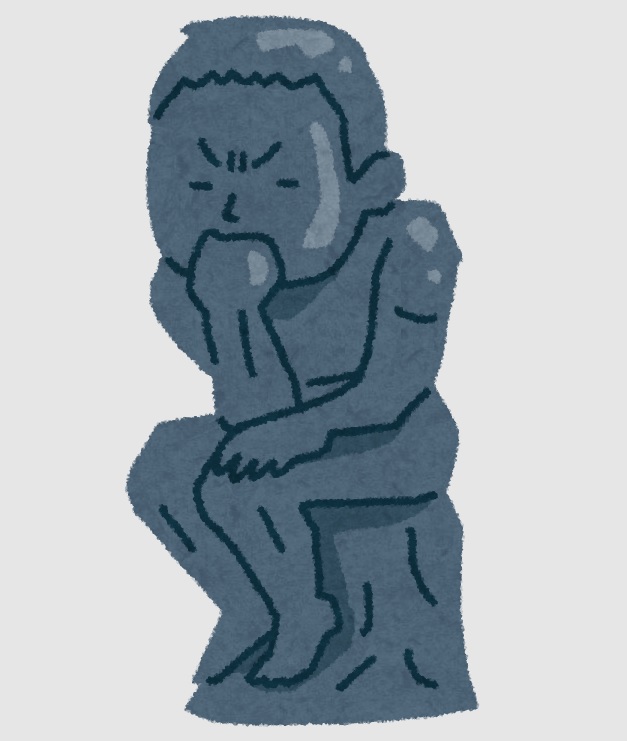「資産にも負債にも|要注意!本当の家の価値とは?」
〜前回のつづき〜
●マイホームのリスク、見逃していませんか? ~引っ越しが難しくなる前に、立地や将来の不安を見極めよう~(つづき)

そして
『マイホームを所有して一人前』
という感覚は薄れつつあります。
今はそんな時代では
なくなってきてますよね。
親の世代は
そういう感覚がありました。
一番私が怖いのは
負債を資産だと誤った認識で買ってる
という事です。
持ち家が資産になる可能性は低い。
“資”産どころか
“死”産になる事が多い。
“不”動産どころか
“負”動産になることがほとんど。
浪費とか消費とか
認識して買ってるので
あればいいんです。
もしくは不動産のプロで

「買った方が得だ!」
と資産価値が有る家を
買ってるのであればいいんですけど
ほとんどのマイホームというのは
資産にならないので
資産になると思って買ってると
非常にキケンです。
郊外の一戸建てで
資産価値が上がるという事は
まずほぼ無いです。
売れ残ってるような
マンションなんか
ゆっくり見に行って
簡単に現地を見れてしまうような所は

まず負債です。
本当にいい物件
値段が上がる物件というのは
プロがすぐに押さえるので
素人に回ってくる事はまず無いです。
⚫︎家選びは“価格”ではなく“価値”で決まる~買った瞬間に損をしない家を選べていますか?~

そもそも資産というのは
買った時以上に
将来金銭的価値を
もたらしてくれるものです。
家は資産にも負債にもなり得る。
例えば
3千万円の家が高いのか安いのかは
価格だけではわかりません。
100円均一のお店で
100円だから安いか高いのか?

「100円だからいいや!」
という考え方もありますが
100円の価値が有るかどうか
それが全てですよね?
3千万円の家であっても
3千万円の価値が無いんだったら
高いという事になりますし
1億円のものであったとしても
それ以上の価格で売れるのであれば
資産価値が有って安いという事になります。
だから
売れる価格によります。
仮に
家というのはずっと住むので
なかなか難しいんですけど
もし買ってすぐ売った場合に
3千万円で買った家が
4千万円で売れるのであれば
それは資産になるし
3千万円で売れるのであれば
損はしてないので
かろうじて資産です。
2千万円になってしまうので
あればこれは負債という事になります。
ほとんどの家が買った瞬間
2〜3割値段が下がるんですね。
それは
販売した不動産会社の利益の分であり
新築の時は必ず乗っています。
〜〜〜つづく〜〜〜
Special Thanks college president Ryo.

●おまけ
≪≪Chat-GPTくんによる要約→perplexityちゃんによる文章まとめ≫≫
マイホーム購入には慎重な判断が必要です。持ち家は必ずしも資産にならず、むしろ負債になることが多いのが現実です。特に郊外の一戸建てや売れ残りのマンションは価値が下がりやすく、購入直後に2~3割価格が下落するケースもあります。
資産価値とは、購入価格以上の金銭的価値を将来もたらすものを指します。価格が高いからといって資産価値が高いとは限らず、逆に低価格でも資産価値がある物件も存在します。
例えば、駅近や生活利便性の高い場所は資産価値を保ちやすいですが、プロが先に押さえるため一般購入者には回りづらいのが現状です。
「価格」ではなく「価値」を重視し、周辺環境や利便性を総合的に判断することが重要です。
誤った認識で負債を抱えないためにも、専門家の助言を活用することをおすすめします。
Citations:
[1] https://gro-bels.co.jp/labo/house-buy-unbelievable/
[2] https://www.homes.co.jp/cont/money/money_00512/
[3] https://mushanavi.com/author/jiyujin/blog2/entry-6894.html
[4] https://www.renomama.jp/encyclo/7916/
[5] https://www.homes.co.jp/cont/money/money_00519/
[6] https://mushanavi.com/author/hotelman/blog2/entry-12731.html
[7] https://www.hajime-kensetsu.co.jp/livelegarden/column/myhome/post-802/
[8] https://business.nikkei.com/atcl/gen/19/00247/111600021/
≪≪Chat-GPTくんによる英訳≫≫
~Continuing from the previous discussion:~
Risks of Homeownership – Are You Overlooking Them?
Before it becomes difficult to move, evaluate the location and future concerns.
The sense of “owning a home makes you an adult” is gradually fading.
We are no longer in that kind of era.
Our parents’ generation had that sense of security, but it’s not the same today.
What worries me the most is when people buy a property with the mistaken belief that debt is an asset.
The possibility of a home becoming an asset is low.
Instead of being an “asset,” it often turns into a “liability.”
Rather than being “real estate,” it often becomes “negative real estate.”
If you’re buying a home as a form of spending or consumption, that’s one thing.
Or if you are a real estate professional buying a home with genuine asset value, then that’s fine.
But most homes do not become assets.
Buying one thinking it will be an asset is very risky.
It is almost impossible for a suburban house to increase in value.
If you go to see a condo that has been sitting unsold for a while, and it’s easy to visit, it’s most likely a liability.
Truly valuable properties, properties with rising prices, are quickly snapped up by professionals.
Amateurs rarely get access to such properties.
Home buying should be based on “value,” not “price” – Are you choosing a home that won’t lose money the moment you buy it?
An asset is something that provides more monetary value in the future than when you purchased it.
A home can either be an asset or a liability.
For example, whether a 30 million yen house is expensive or cheap cannot be determined by price alone.
Is a 100-yen item at a discount store a good deal just because it costs 100 yen?
The thinking of “It’s only 100 yen, so it’s fine!” exists, but the real question is whether it’s worth 100 yen.
Even if a house costs 30 million yen, if it’s not worth 30 million yen, then it’s expensive.
On the other hand, if a property is worth more than its cost and can be sold for a higher price, then it has asset value and is cheap.
Ultimately, it depends on the price it can be resold for.
Although it’s difficult when you plan to live in a house for the long term,
if you were to sell a house immediately after buying it for 30 million yen, and you sell it for 40 million yen, it becomes an asset.
If you sell it for 30 million yen, you’re not losing money, so it could still be considered an asset.
But if the value drops to 20 million yen, then it becomes a liability.
Most homes lose 20–30% of their value the moment you buy them.
This loss is typically the profit margin for the real estate company that sold the property, and new homes always include that markup.
Special Thanks OpenAI and Perplexity AI, Inc


